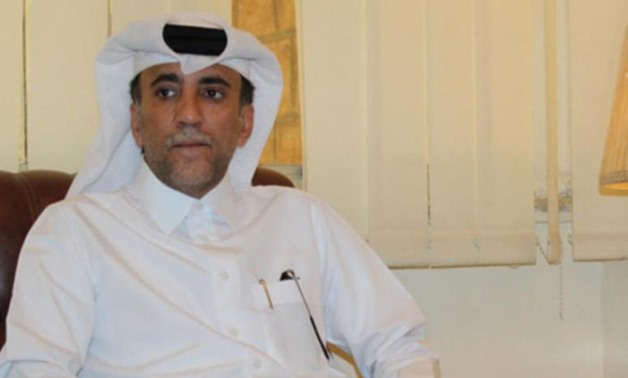
FILE: Qatari ambassador Hassan Bin Hamza Hashem
CAIRO – 24 July 2019: A businessman linked to the Qatari Emir told Qatar’s ambassador to Somalia that an extremist attack in May was carried out to advance Doha’s interests in the country against the UAE, an audio recording obtained by the New York Times revealed.
According to the New York Times report, in the recording Khalifa Kayed Al-Muhanadi tells Qatari ambassador Hassan Bin Hamza Hashem that “the bombings and killings, we know who are behind them.”
Al-Muhanadi says the attack was done in order “to make Dubai people run away from there.”
“Let them kick out the Emiratis, so they don’t renew the contracts with them, and I will bring the contract here to Doha,” Al-Muhanadi said.
The ambassador then tells Al-Muhanadi that the attacks were taking place “to make them run away,” referring to the UAE.
“Our friends were behind the last bombings,” Al-Muhanadi replies.
When asked by the New York Times about the recording, neither Al-Muhanadi nor the Qatari government denied the authenticity of the phone call, which was secretly recorded by a “foreign intelligence agency opposed to Qatar’s foreign policies.”
During the phone call, the Qatari businessman tells his country’s diplomatic representative to Somalia that he is connected to a family member of Somalia’s president and would help in the transfer of contracts from UAE-owned DP World onto Qatar.
The Dubai state-owned port operator DP World has a presence in the Horn of Africa. It launched last October a $101 million project to expand a port in the breakaway region of Somaliland. Somaliland broke away from Somalia in 1991 and has acted as a de-facto independent state since then but is not internationally recognized.
Gunmen shot and killed a DP World subsidiary company manager in Somalia’s semi-autonomous region of Puntland in February, with the al-Shabab militant group claiming responsibility for the attack according to Reuters.
When contacted by the New York Times, the Qatari ambassador denied he knew Al-Muhanadi and cut the phone call short. Al-Muhanadi, however, told the New York Times that he was school friends with the ambassador.
“I am a retired man and a trader ... I do not represent any government,” Al-Muhanadi was quoted as saying.
Qatar’s communications office released a statement to the New York Times saying that they “do not meddle in the internal affairs of sovereign countries.”
“Anyone doing so is not acting on behalf of our government,” the statement read.
Last April, the UAE ended its mission to Somalia after an incident that saw Somali soldiers board an Emirati airplane at the Mogadishu airport, assault its soldiers at gunpoint, and confiscate $9.6 million.
Relations between Somalia and the UAE had been strained over the ongoing diplomatic crisis engulfing Qatar, the Associated Press reported at the time. Somalia’s government remained neutral in the conflict despite the Saudi and Emirati stance in denouncing Doha.
“Just talk to our friends from the simple people of Somalia,” Al-Muhanadi tells the Qatari ambassador, according to the audio recording obtained by the New York Times.

Comments
Leave a Comment